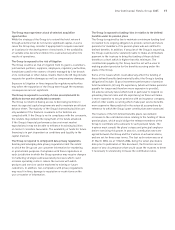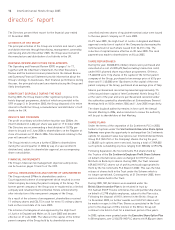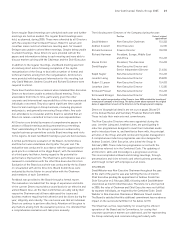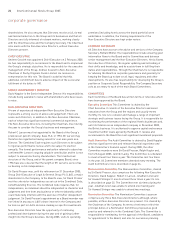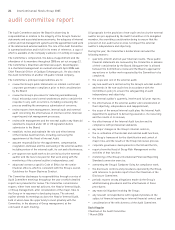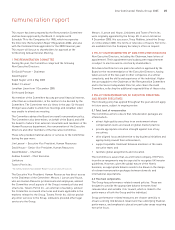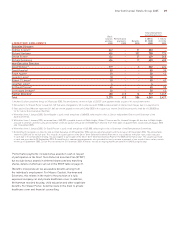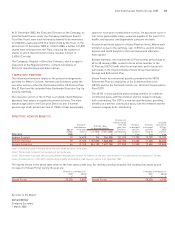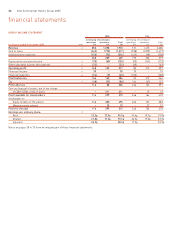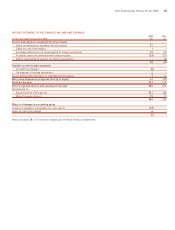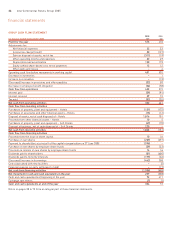Holiday Inn 2005 Annual Report Download - page 29
Download and view the complete annual report
Please find page 29 of the 2005 Holiday Inn annual report below. You can navigate through the pages in the report by either clicking on the pages listed below, or by using the keyword search tool below to find specific information within the annual report.
As indicated in last year’s Remuneration Report, the asset disposal
programme, which can significantly impact Return on Capital
Employed (ROCE), will be complete during 2006. The Committee
believes that a rooms’ growth related performance measure is now
the more appropriate measure going forward, effectively aligning
an appropriate element of incentive pay with the Group’s stated
objective of increasing the number of rooms in the IHG system.
Benefits under the Performance Restricted Share Plan are not
pensionable and the awards lapse if the performance conditions
are not met.
During the year, IHG has remained within its headroom limits for
the issue of new shares under share incentive schemes. Prior to
the capital reorganisation of June 2005 and the consequent
reduction in the Company’s share capital, the Company’s position
under the Association of British Insurers’ guidelines (that dilution
under discretionary schemes should not exceed 5% in 10 years)
was that shares equivalent to only 4.58% of ordinary share capital
had been allocated. Against the guideline that overall dilution
under all schemes should not exceed 10% in 10 years, IHG had
allocated only 4.95%. These figures exclude obligations which
are to be settled with shares purchased in the market.
3.3 Companies used for comparison
In assessing levels of pay and benefits, IHG compares the packages
offered by different groups of comparator companies.
These groups are chosen having regard to participants’:
• size – turnover, profits and the number of people employed;
• diversity and complexity of businesses;
• geographical spread of businesses;
• industry type; and
• relevance as:
a) a potential recruitment target
b) a potential threat in respect of attracting IHG talent.
External consultants are used to advise the Committee on the
structure and level of pay and benefits in IHG’s markets.
3.4 Policy on external appointments
The Company recognises that its Directors may be invited to
become Non-Executive Directors of other companies and that
such duties can broaden experience and knowledge, and benefit
the business. Executive Directors are, therefore, allowed to accept
one Non-Executive appointment (excluding positions where the
Director is appointed as the Group’s representative), subject to
Board approval, as long as this is not likely to lead to a conflict of
interest, and to retain the fees received. David Webster received
£20,000 during the year for his services as a Non-Executive
Director.
3.5 Performance graph
Throughout the year, the Company has been a member of the
FTSE 100 index. The graph below measures the performance of
Six Continents PLC up to Separation, and subsequently the
performance of IHG PLC, assuming dividends are reinvested,
compared with the TSR performance achieved by the FTSE 100
companies.
InterContinental Hotels Group 2005 27
250
200
150
100
50
0
Source: Datastream
IHG PLC shares listed 15.4.03
InterContinental Hotels Group PLC – Total Shareholder Return Index
(Six Continents PLC up to 14 April 2003)
FTSE 100 – Total Shareholder Return Index
Total Shareholder Return: InterContinental Hotels Group v FTSE 100
Oct 2000 Oct 2001 Oct 2002 Jan 2004 Jan 2005 Jan 2006
(Mean average index for the month – October 2000=100)


